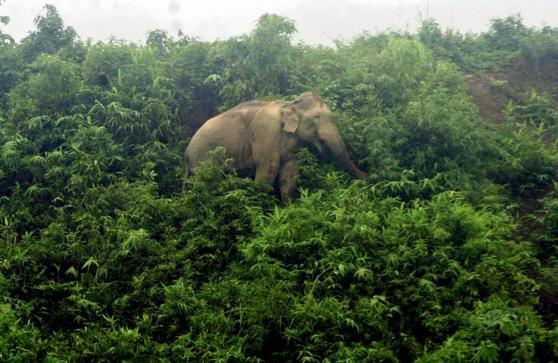Elephants face ‘time bomb’ in Bangladesh

Standing atop an elephant watch-tower on the outskirts of the sprawling Rohingya refugee settlement in Cox's Bazar, Nur Islam takes great pride in keeping his people safe. Dressed in a uniform of blue T-shirt, navy trousers and a neon yellow vest, Islam is one of 570 Rohingya on the Elephant Response Team, known locally as the tusk force, who are on duty every night to look out for elephants coming into the camps.
After about 730,000 Rohingya fled Myanmar into Bangladesh 18 months ago and set up camp, they realised they were not only at risk from monsoons and cyclones but also elephants, as they were blocking a migration path, with 13 people killed in six months. Raquibul Amin, Bangladesh representative for the International Union for Conservation of Nature (IUCN), said as a quick fix in February 2018 they built 95 towers and trained a team to watch, raise the alarm and guide elephants out of camps.
He said in the past year the all-male response team, who are paid to work, had steered elephants away from the former nature reserve on at least 50 occasions with no more fatalities.

